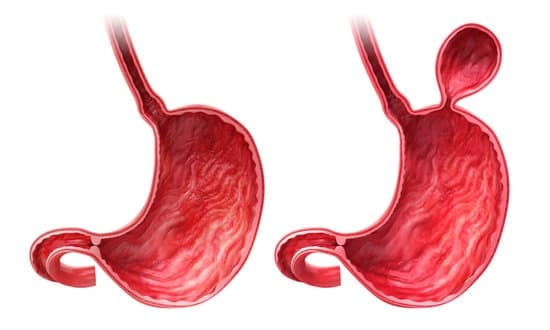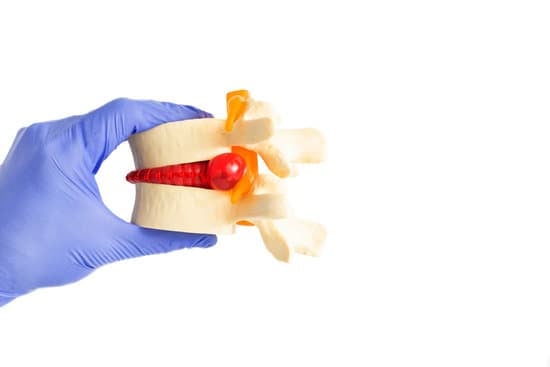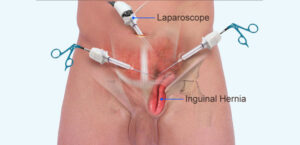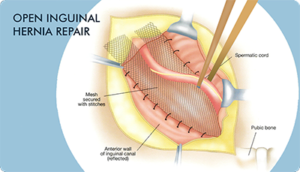Are you suffering from an umbilical hernia and considering hernia surgery? This article is your ultimate guide to understanding the diagnosis, treatment, and recovery process. With expert insights and valuable information, we’ll walk you through everything you need to know about managing and treating umbilical hernias.
An umbilical hernia occurs when a portion of the intestine or fatty tissue pushes through a weakened spot in the abdominal muscles near the belly button. This condition can cause discomfort, pain, and even serious complications if left untreated, making proper diagnosis and treatment essential.



In this comprehensive guide, we’ll explore how umbilical hernias are diagnosed, including physical exams and imaging tests. We’ll also discuss surgical treatment options, such as laparoscopic and open hernia repair, to help you understand what might be best for your situation.
Furthermore, you’ll discover valuable tips for the recovery process, including post-operative care recommendations for a smoother healing journey. Whether you’re curious about the surgical procedure itself or want to know what to expect after surgery, this guide provides the insights you need.
Don’t let an umbilical hernia impact your quality of life. Empower yourself with knowledge, explore your treatment options, and take the first step toward a healthier, hernia-free life.
An umbilical hernia occurs when a portion of the intestine, fatty tissue, or fluid pushes through a weakened spot in the abdominal muscles near the belly button. This condition often creates a noticeable bulge in the navel area, which may become more prominent when coughing, straining, or standing. Umbilical hernias can affect people of all ages, from infants to adults, and may result in discomfort, pain, or even complications if left untreated. For severe cases, hernia surgery is the most effective solution to repair the abdominal wall and prevent further issues.
Seeking the right hernia treatment is essential for managing this condition and avoiding complications. If you are experiencing symptoms, consulting the Best Laparoscopic & Bariatric Surgeon is crucial to receive personalized care. Depending on the severity, treatment options range from non-surgical monitoring to advanced procedures like laparoscopic hernia surgery. These minimally invasive techniques are particularly effective for repairing umbilical and other abdominal hernia, ensuring faster recovery and minimal discomfort.
An umbilical hernia typically presents with a noticeable bulge or swelling near the belly button, which may increase in size when coughing, straining, or standing. While small hernias are often painless, larger ones can cause discomfort, tenderness, or even pain. In severe cases, the hernia may become incarcerated or strangulated, leading to symptoms like intense pain, nausea, vomiting, or redness around the affected area. These signs require immediate medical attention as they can pose serious health risks. Prompt hernia treatment is essential to prevent complications and to determine if hernia surgery is necessary.
Diagnosing an umbilical hernia involves a thorough physical examination by a qualified surgeon. The bulge is often detectable during routine checks, and imaging tests like ultrasounds or CT scans may be used for confirmation, particularly in cases where complications are suspected. Consulting the Best Laparoscopic & Bariatric Surgeon ensures a precise diagnosis and access to advanced treatment options, such as minimally invasive laparoscopic techniques. These procedures not only repair the abdominal hernia effectively but also promote faster recovery with minimal scarring, making them a preferred choice for many patients.
An umbilical hernia occurs when a portion of the intestine or fatty tissue protrudes through a weakened area in the abdominal wall near the belly button. Several risk factors increase the likelihood of developing this condition. In adults, obesity, pregnancy, and repetitive strain on the abdominal muscles are common contributors. Chronic coughing, frequent heavy lifting, and previous abdominal surgeries can also lead to the development of an abdominal hernia. For infants, the condition is often related to the incomplete closure of abdominal muscles after birth. Regardless of the cause, timely hernia treatment is essential to prevent complications and improve quality of life.
If left untreated, an umbilical hernia can lead to discomfort, pain, or even serious complications such as incarceration or strangulation of the herniated tissue. Consulting the Best Laparoscopic & Bariatric Surgeon ensures access to advanced treatment options, including minimally invasive hernia surgery techniques like laparoscopic repair. These methods offer faster recovery times and reduced post-operative discomfort compared to traditional approaches. Understanding the risk factors and seeking early intervention can significantly enhance outcomes for patients dealing with an abdominal hernia.
When it comes to treating an umbilical hernia, choosing the right type of hernia surgery is crucial for effective recovery and long-term results. The two primary surgical options are open hernia repair and laparoscopic hernia repair, both designed to address abdominal hernias by repositioning the herniated tissue and reinforcing the abdominal wall. Open hernia surgery involves a single larger incision near the navel, allowing direct access to the hernia site, while laparoscopic surgery is a minimally invasive approach using small incisions and a camera to guide the repair. For patients seeking advanced care, consulting the Best Laparoscopic & Bariatric Surgeon ensures a tailored approach to hernia treatment.


Laparoscopic hernia repair is often preferred for its faster recovery time, minimal scarring, and reduced risk of complications. However, open surgery remains an effective option for larger or more complex abdominal hernias. Both procedures may include the use of surgical mesh to strengthen the abdominal wall and prevent recurrence. Choosing the right hernia treatment depends on factors such as the hernia’s size, location, and the patient’s overall health. A skilled surgeon can help determine the best option to restore your comfort and quality of life.
Preparing for umbilical hernia surgery involves careful planning to ensure a successful procedure and smooth recovery. Begin by consulting the Best Laparoscopic & Bariatric Surgeon to discuss your condition and determine the most effective approach for your hernia treatment. Your surgeon will provide instructions on pre-surgery preparations, which may include fasting, stopping certain medications, and arranging post-operative care. These steps are essential for minimizing risks and optimizing the outcome of your abdominal hernia repair.
It’s also important to create a comfortable recovery environment at home before undergoing hernia surgery. Stock up on necessary supplies, including prescribed medications, loose-fitting clothing, and nutritious meals to aid healing. Follow your surgeon’s guidelines, such as avoiding strenuous activities and maintaining a healthy weight, to reduce strain on the repaired area. By working closely with a skilled surgeon and preparing thoroughly, you can ensure a safe and successful hernia treatment journey.
The surgical procedure for umbilical hernia repair is a highly effective solution to address this common abdominal hernia. During hernia surgery, the surgeon repositions the protruding tissue back into the abdominal cavity and reinforces the weakened area of the abdominal wall. This can be done through open surgery or minimally invasive laparoscopic techniques. Many patients prefer laparoscopic hernia treatment, as it involves smaller incisions, reduced scarring, and a quicker recovery time. Consulting with the Best Laparoscopic & Bariatric Surgeon ensures that the procedure is tailored to your specific condition and needs.
hernia surgery for umbilical hernias typically uses mesh reinforcement to strengthen the abdominal wall and reduce the risk of recurrence. This advanced hernia treatment technique not only restores functionality but also prevents future complications. Post-operative care and adherence to recovery guidelines are crucial for achieving optimal results. With expert care from the Best Laparoscopic & Bariatric Surgeon, you can confidently take the first step toward resolving your umbilical hernia and reclaiming a pain-free, active lifestyle.
Recovery after hernia surgery is a crucial part of the healing process, and it’s essential to follow your surgeon’s instructions closely for the best results. After undergoing umbilical hernia surgery, most patients can expect a gradual recovery. If you’ve undergone laparoscopic hernia surgery, the minimally invasive nature of the procedure usually means less pain and a faster recovery compared to traditional open surgery. However, regardless of the method used, it’s important to rest and avoid heavy lifting or strenuous activities for several weeks. Following your surgeon’s aftercare advice, such as taking prescribed pain medications and caring for your incision site, will promote a smoother healing journey. Working with The Best Laparoscopic & Bariatric Surgeon ensures you receive the best care, tailored to your needs, for an optimal recovery.
Post-operative care also includes maintaining a healthy diet to support healing and prevent complications. Your hernia treatment plan may include dietary recommendations and advice on managing any discomfort during the recovery period. Additionally, while mild discomfort is common, be alert to any signs of infection or complications, such as increased swelling or fever. If you experience any issues, promptly consult your surgeon. For those who’ve had abdominal hernia surgery, staying active with light walking and avoiding any activities that could strain the surgical site will help prevent recurrence. Following the prescribed aftercare steps ensures the best chance of long-term success and a hernia-free future.
While umbilical hernia surgery is generally safe, like any surgical procedure, there are some risks and potential complications. Common risks include infection, bleeding, and adverse reactions to anesthesia. Additionally, there may be a risk of the hernia recurring, particularly if the abdominal wall is not sufficiently reinforced or if there is excessive strain on the area post-surgery. For patients undergoing laparoscopic surgery, there is a risk of injury to surrounding organs, though this is rare when performed by an experienced surgeon. It is essential to consult with the Best Laparoscopic & Bariatric Surgeon to minimize these risks and ensure the best possible outcome.
Another potential complication of hernia surgery is the formation of scar tissue or adhesions, which can cause discomfort or interfere with abdominal function. In some cases, patients may experience chronic pain or numbness at the surgical site, though these side effects typically resolve over time. It is important to follow your surgeon’s advice on hernia treatment and postoperative care to reduce the likelihood of complications. With proper attention and care, most individuals recover fully from abdominal hernia surgery, leading to long-term relief from symptoms and a return to normal activities.
Recovering from umbilical hernia surgery requires careful attention to both physical and lifestyle factors to ensure a smooth healing process. After undergoing hernia surgery, it’s crucial to follow your surgeon’s post-operative instructions closely. Whether you’ve had laparoscopic or open surgery, limiting physical strain during the initial recovery period is key. Rest, hydration, and a nutritious diet will support your healing process and reduce the risk of complications. Avoid lifting heavy objects or engaging in strenuous activities for several weeks to prevent stress on your abdominal muscles, which could slow recovery or lead to a recurrence of the hernia. If you experience any unusual symptoms such as excessive pain, swelling, or signs of infection, it’s important to consult your doctor promptly.
To maximize your recovery and minimize any risks, consider working with the Best Laparoscopic & Bariatric Surgeon who specializes in abdominal hernia and hernia treatment. They will provide expert guidance and personalized care to ensure that you are on the right path to recovery. In addition, adhering to a balanced exercise plan as recommended by your surgeon can help strengthen your abdominal muscles post-surgery, ensuring long-term success. By taking these essential steps and following your doctor’s advice, you can achieve a full recovery and enjoy a hernia-free life with reduced chances of future complications.
Recovering from umbilical hernia surgery offers the opportunity to return to a pain-free and active lifestyle. After your hernia surgery, it’s crucial to follow your surgeon’s recommendations for post-operative care, which includes avoiding heavy lifting, maintaining a balanced diet, and gradually increasing physical activity. With proper care, most patients recover fully and experience minimal complications. By taking the necessary steps, you can prevent future abdominal hernia and ensure long-term health.
If you’re looking for the best care, consulting the Best Laparoscopic & Bariatric Surgeon is essential for optimal results. They can offer expert advice and treatment options tailored to your specific needs, whether it’s for hernia treatment or other related conditions. By addressing your abdominal hernia early and seeking professional surgical intervention, you can regain control over your health and live a fulfilling, active life free from the discomfort of hernias.


Schedule your appointment quickly and easily with just a few clicks.




Dr Ahmed Hassn is a UK trained highly qualified Best Laparoscopic & Bariatric Surgeon with more than 21 years of consultant experience in his field.
Don’t miss our future updates! Get Subscribed Today!
©2024. Dr Ahmed Hassn. All Rights Reserved.